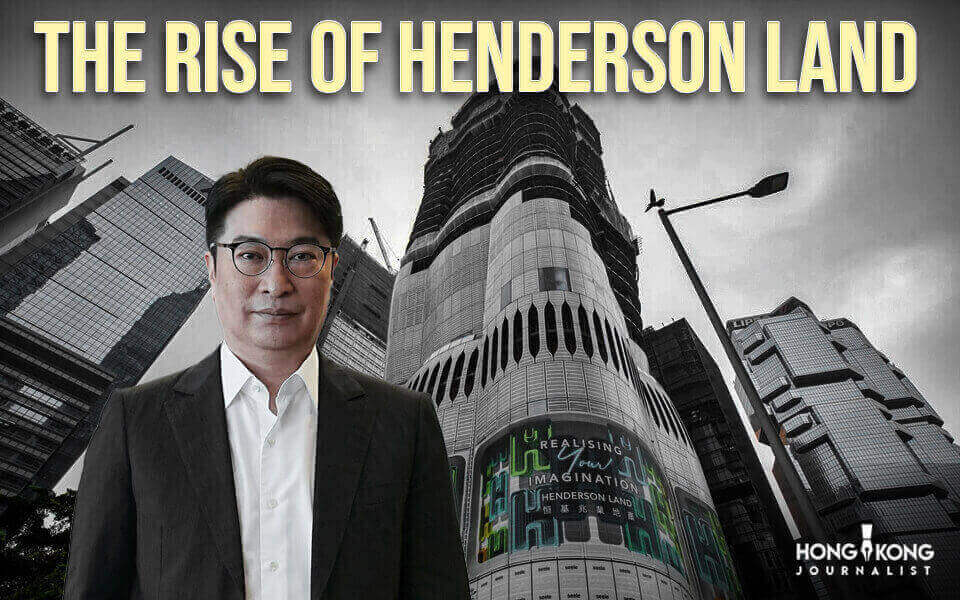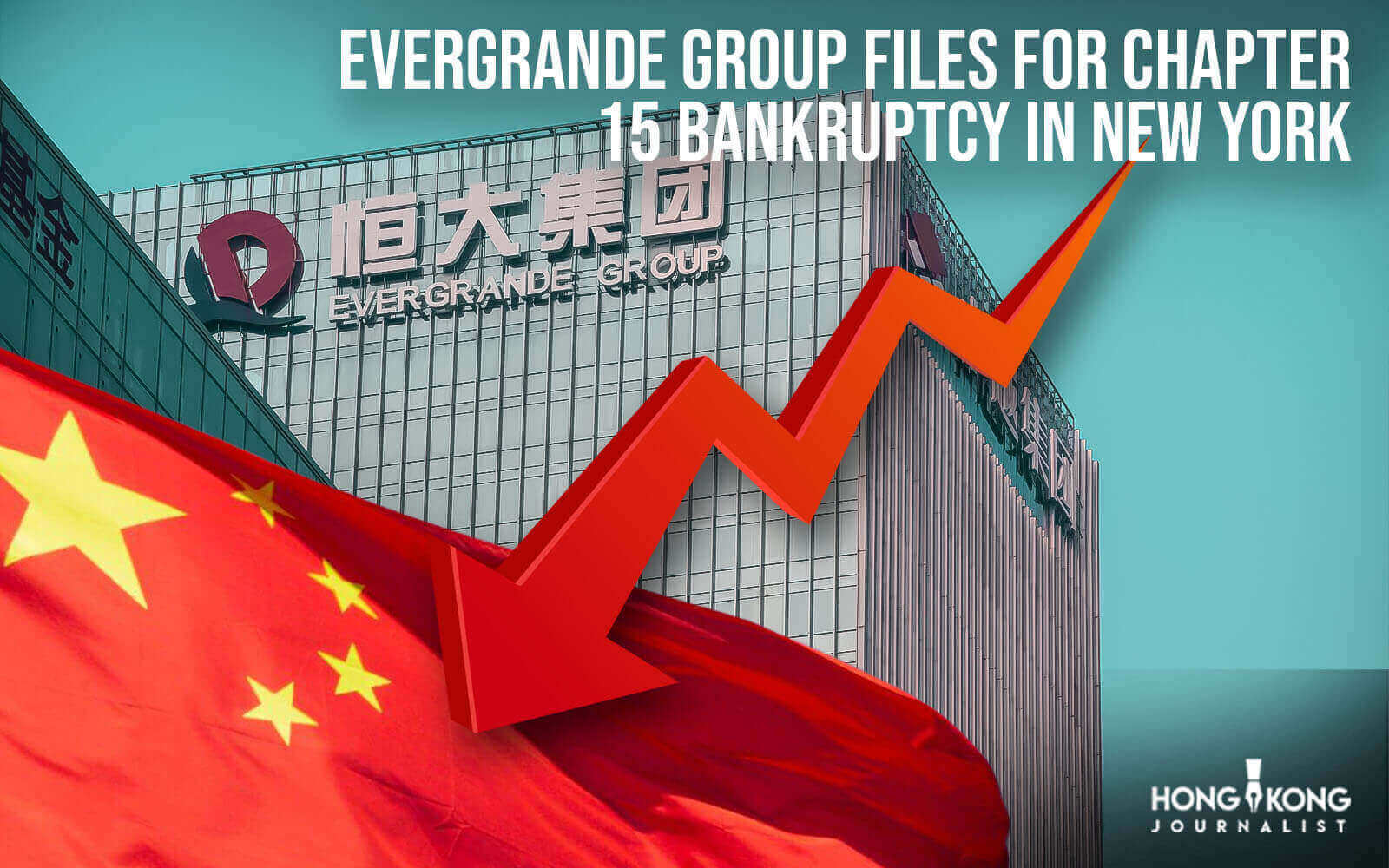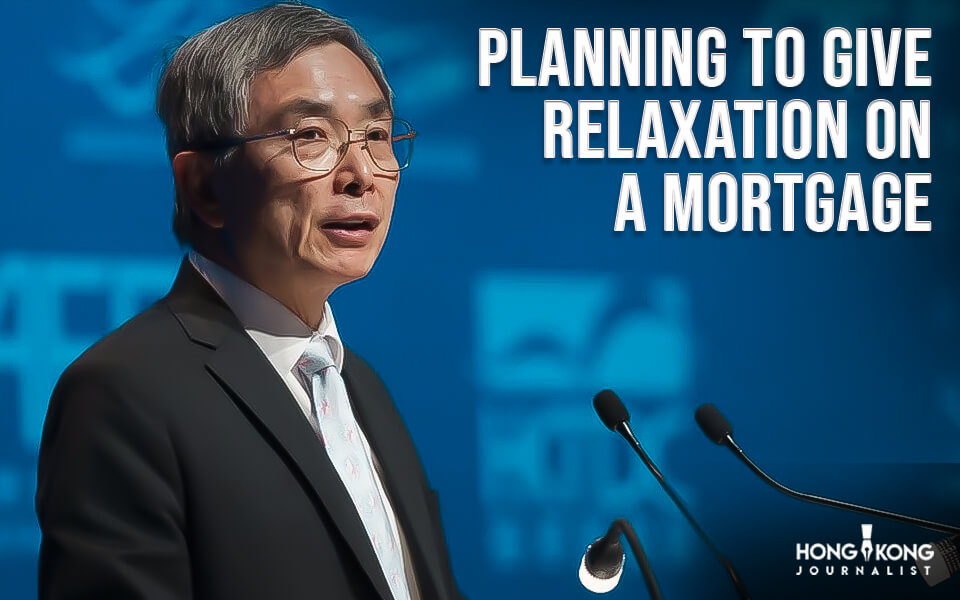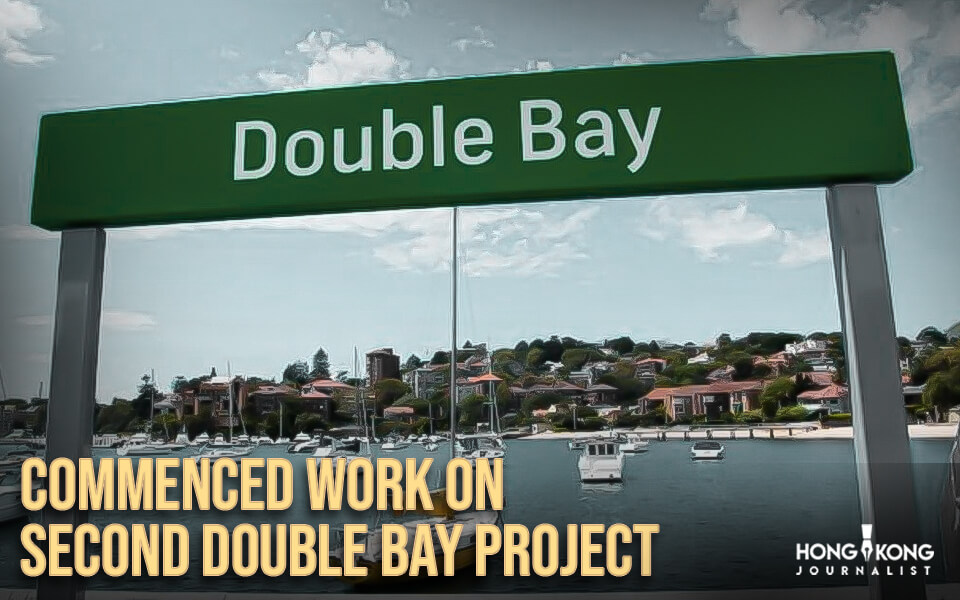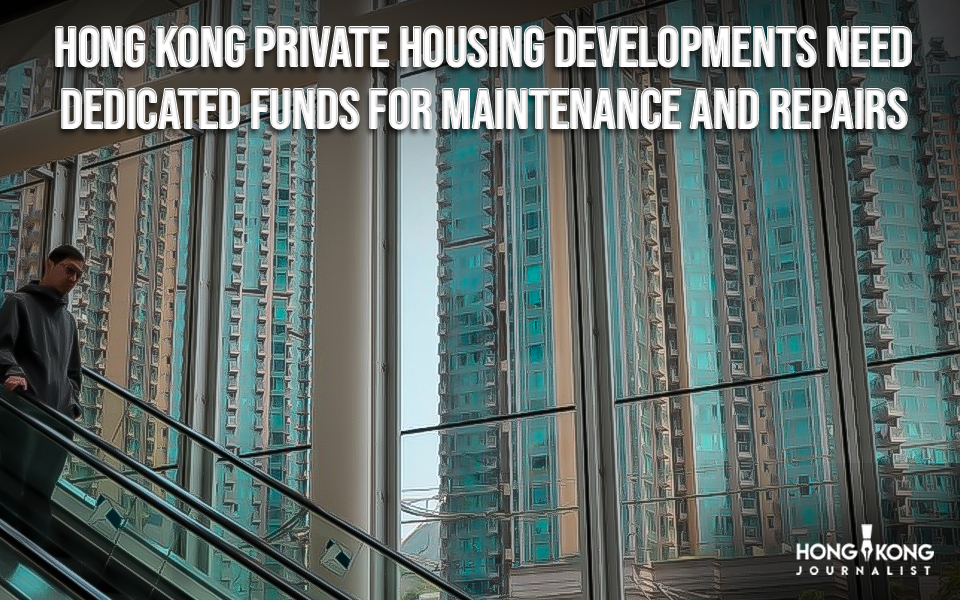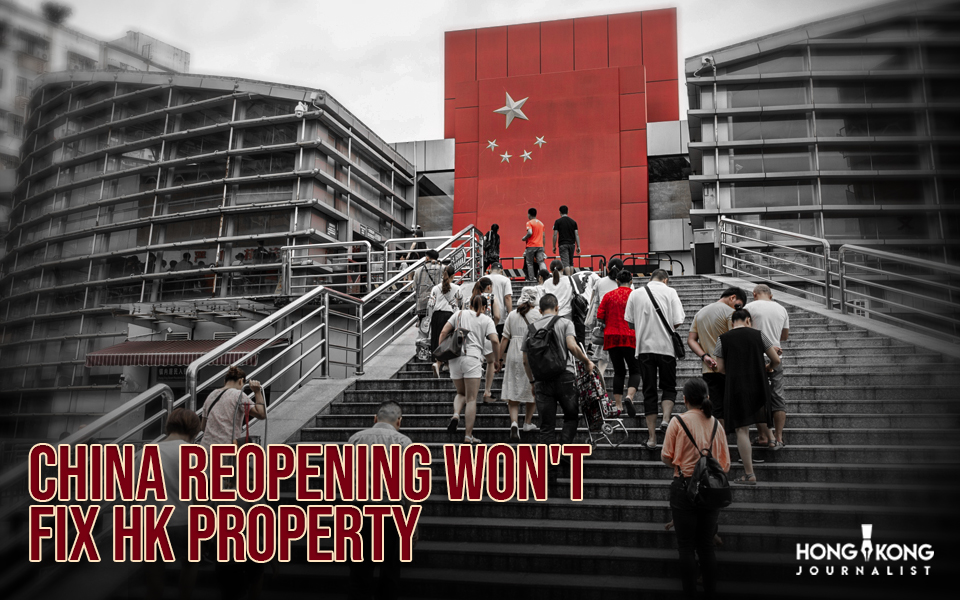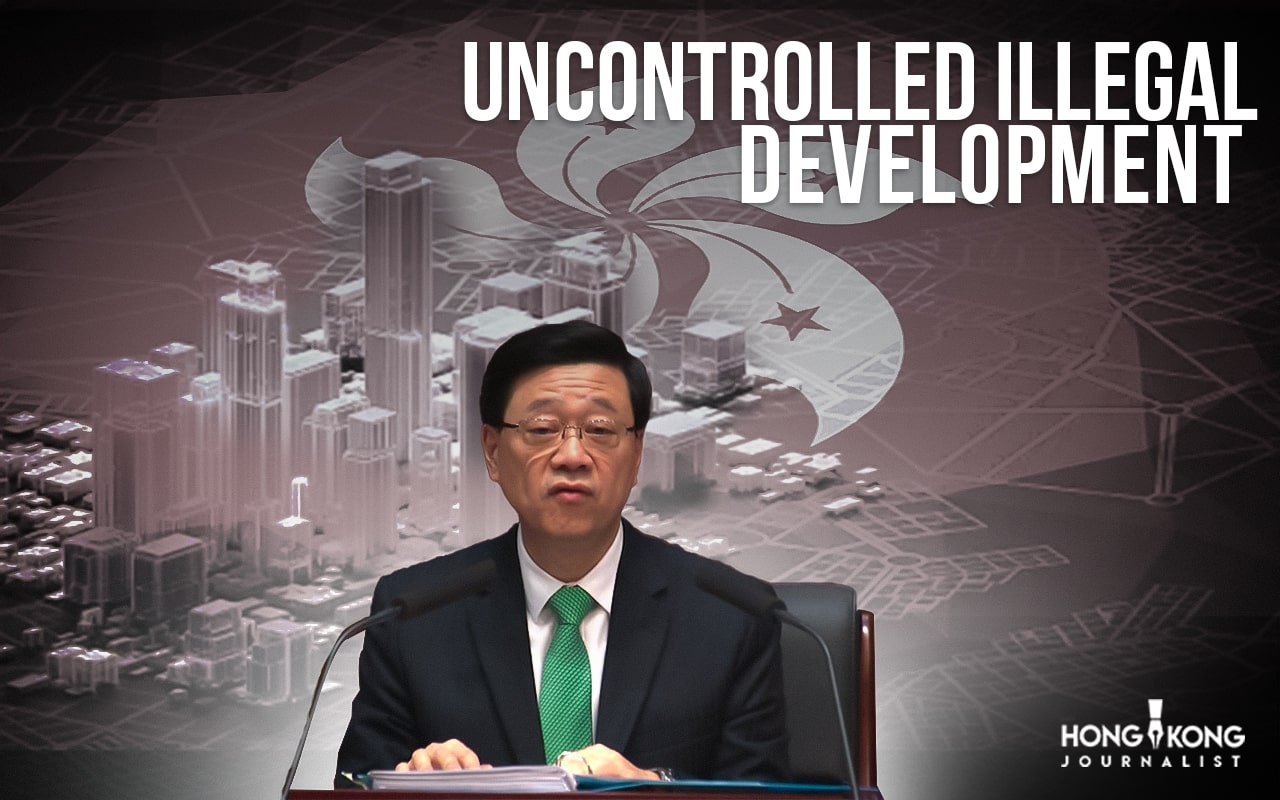
- The explosion of protest over the pervasive practice serves as a reminder of how thoroughly the law is disregarded.
- Such mistreatment erodes confidence in the rule of law, encourages corruption, and casts doubt on the legitimacy of the administration.
I purchased a three-story village house in a clan community on a Sai Kung bay over 22 years ago. It was encircled by a charming white picket fence and situated in the center of a 2,500 square foot patchwork-tile garden. It was a property I had always dreamed of having, surrounded by mountains and near to the lake, and light years away from the metropolitan cliché that most people associate with Hong Kong.
The seller informed me that he had applied for a five-year short-term tenancy (STT) with the Lands Department five years prior in order to clear up his legal right to “use” the garden, but he had not heard back. I should reapply, he said.
I caused a commotion when I brought this up to my neighbors. Most told me that applying was foolish. Ultimately, during the time the previous owner had been there, his right to utilize the garden had never been contested by the government. Why would someone agree to pay which would have cost around HK$15,000 (US$1,900) annually at that point?
Some were motivated more by self-interest. Many others had little gardens as well, and none of them had bothered to register for a STT. They were afraid that when officials arrived to look at my garden, they would see all the other gardens and find out they were unlawfully occupied, and that my application would set up a hornets’ nest.
A mob of local clan members rushed the Sai Kung Lands office, demanding that my application be denied, after I made the moral decision to apply. They weren’t just worried that officials might want to get STTs for their own gardens; they also thought that since my garden area was part of the community, I shouldn’t be able to use it for the “exclusive” access that my STT would grant.
It took a another three years for the Lands Department to respond, dismissing the objections of the local clan and stating they would give me a STT. No one else in the community had submitted a STT application for their own gardens, and as of just now, no one from the government has visited them to bother them. The majority of my neighbors still think I’m an idiot for applying.
Needless to say, I have a sensitive relationship with clan locals, who harbor deep grudges, much like most “outsiders.” I remain silent on the prevalent unofficial fees associated with vehicles parked on village-owned land, nor the abundant proof of unlawful constructions scattered around the community. Should the authorities lack the motivation to monitor this regular violation, What makes me a good village snitch?
For most of us, the recent outburst of protest over pervasive illegal development—many of which occurred on government land in luxurious housing developments like Redhill in Tai Tam, Flamingo Garden in Clear Water Bay, or Seaview Villas in Tai Po—has only served as a reminder of the extreme degree of contempt for the law.
Previous heinous criminal developments by former justice minister Teresa Cheng and billionaire Henry Tang Ying-yen, a former executive councilor, have previously demonstrated how widely prominent government officials blatantly disregard the law when it comes to development restrictions.
Only the most egregious legal infractions are prosecuted, and even then, only if the breaches are both serious and obvious, as demonstrated by the excellent work of Post journalists Jeffie Lam and Edith Lin, supported by the outstanding work of NGO Liber Research. We must also give thanks to the most recent advancements in drone technology, which have facilitated the rapid and simple detection of violations that were previously securely concealed from view.
According to Buildings Department authorities, 3,310 cases were prosecuted and 7,225 removal orders were issued in 2023. This appears to just highlight the numerous instances that go unreported or are the subject of removal orders, rather than providing reassurance that the government is treating the problem of unlawful development seriously.
Although Chief Executive John Lee Ka-chiu pledged a crackdown last week, his words offered little consolation. “Priorities will be determined based on the severity and scope of the issue, with special attention to safety and environmental risks,” he said. It appeared as though he was suggesting that the issue was too big to be approached methodically and that straightforward land grabs motivated by profit would have a lesser priority.
From the perspective of my town, where there is abundant evidence of unlawful development, there are a number of simple, self-funding projects that have the potential to stop this regular criminal activity. For instance, take rapid action on anything that is apparent and hire a sizable number of additional employees to guarantee that offenses are prosecuted and handled quickly. The expense of hiring extra workers would be more than offset by higher fines.
Additionally, be explicit that prosecution would target not just owners but also architects, interior designers, contractors, and conveyancing solicitors. For all these specialists, it must be very clear that the job being farmed out is illegal. In the case of new residences, an occupancy permit should not be granted to a buyer until the appropriate building criteria have been certified as met.
The law is a laughing stock these days. Respect for the law is eroded in the community by such pervasive and frequent misuse. It considers regular law-abiding citizens to be mugs. It draws corruption and raises concerns about the administration’s overall honesty. The “result-oriented” government of Lee has to get real.
- Published By Team Hongkong Journalist

